Your Guide to 10 Popular Landscape Paving Materials
http://decor-ideas.org 09/13/2015 00:13 Decor Ideas
Paving is a landscape investment, and the cost varies considerably based on the type used and how readily available it is. Cast-in-place concrete is usually the cheapest and most easily installed paving option, but those who live in regions with naturally occurring stone like limestone, granite or slate can use that local stone at a more affordable price.
Here are our guides to 10 of the most popular paving materials. Whether you are repaving or paving new, you can use them to understand the basics about paving to make an informed decision based on your situation and where you live.
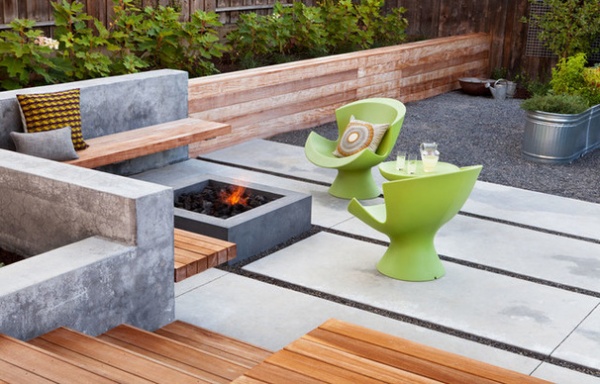
Cast-in-Place Concrete: Budget-friendliest
Concrete is the standard because it’s affordable, easy to install and easy to maintain. However, cast-in-place concrete doesn’t have to be boring just because it’s the standard. There are many ways to create patterns, textures and colors to liven it up.
Guide: Pros and cons of cast-in-place concrete
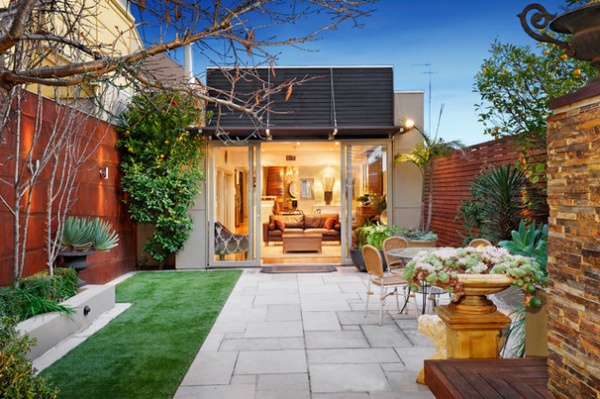
Precast Concrete Pavers: Best color and texture variety at an affordable price
Precast concrete pavers are modular pavers that come in a dizzying number of sizes, shapes, colors, textures and patterns. Precast concrete pavers are a great choice for those who want a different look but don’t want to pay for natural stone. Modular permeable systems, which soak up water instead of creating runoff, are available for driveways, walkways and patios.
Guide: Pros and cons of precast concrete paving
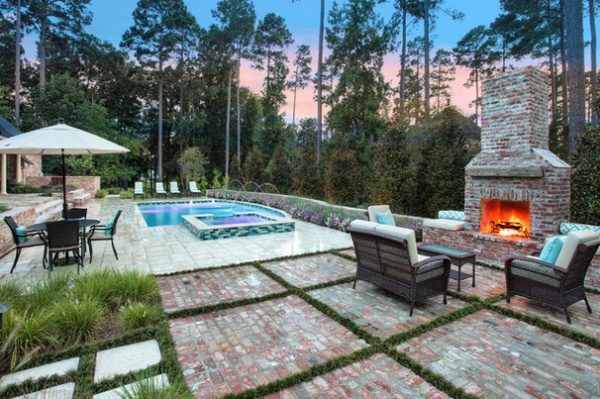
Brick: Classic style and works in all climates
Brick in the standard 4-inch-by-8-inch size can be used to make many fun patterns, including herringbone, without looking too busy, and its reddish tones bring warmth to the garden. Brick also works well with many other hardscapes, which is why you’ll often see it used with wood decks and other paving materials.
Guide: Pros and cons of brick paving
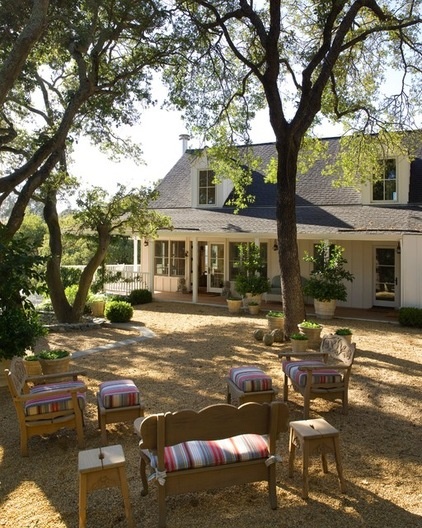
Gravel: Great for permeability and to soften a hardscape
Gravel is available as decomposed stone by the bag or pallet and can be used for paths and patios where you want a softer look. It needs to be bound by some kind of rigid edge, like in the space shown here, to contain it.
Guide: Pros and cons of gravel paving
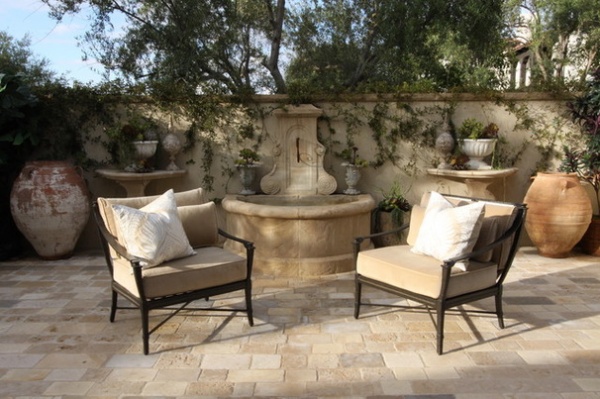
Limestone: Great for reflecting heat in hot climates
Limestone is typically white to off-white and sometimes a grayish white. Its light colors make it fantastic for warm climates, where it can reflect heat. It also brings a nice brightness to shaded garden areas — lightening up even places in deep shade.
Guide: Pros and cons of limestone paving
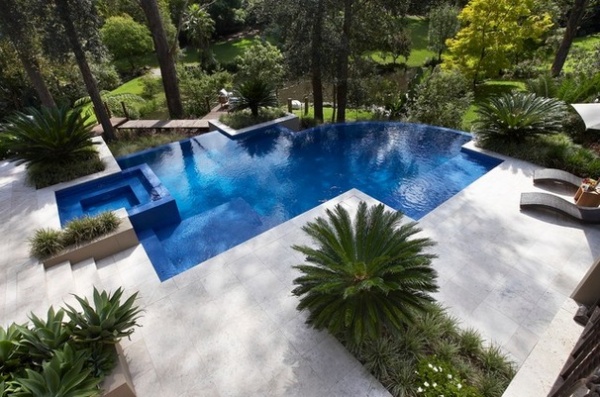
Travertine: Best for surrounding a pool
Travertine is harder and less porous than its cousin limestone, which makes it somewhat easier to maintain. It stays cool to the touch and makes a lovely poolside surface for bare feet.
Guide: Pros and cons of travertine paving
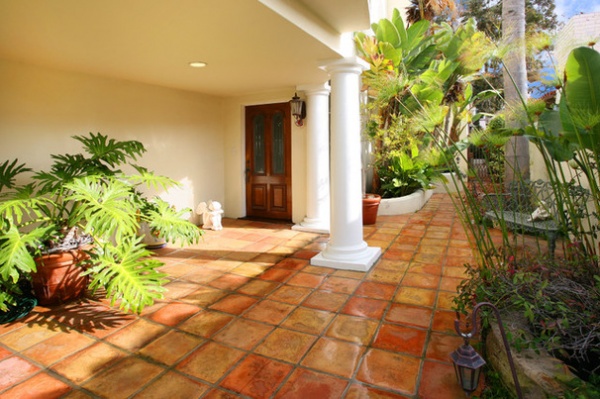
Tile: Great colors for warm climates
Tile is bold and funky because it comes in bright and rich colors and is a nice choice for warm climates. It can be tricky to maintain, so be sure you are ready to keep up with tile maintenance.
Guide: Pros and cons of tile paving
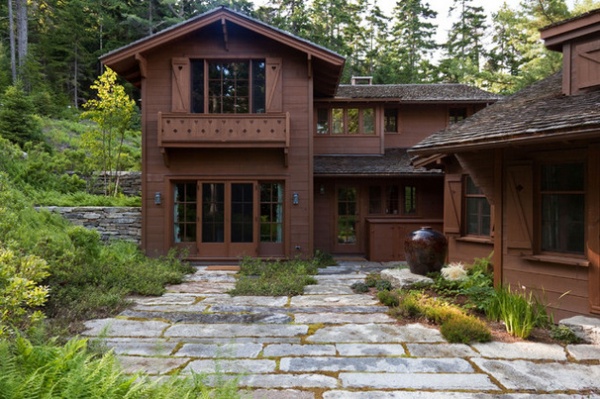
Granite: A superior tough stone that’s excellent in cold climates
Granite is expensive, at $14 to $20 per square foot installed, but it may be worth the investment for you because it lasts several lifetimes. If you live near the granite quarries of the Northeast, it’s also a sustainable, local building material.
Guide: Pros and cons of granite paving
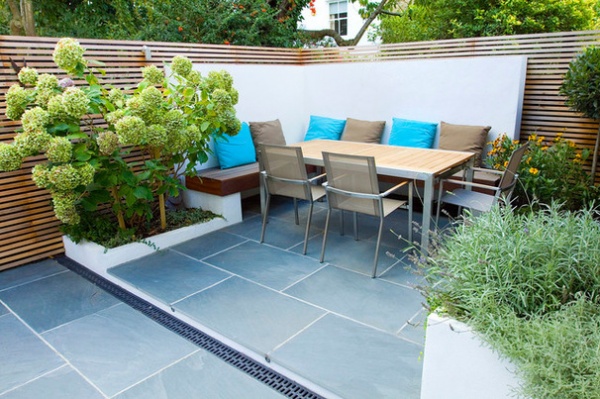
Slate: Great for cold climates and deep in color
Slate has a deep, rich color and is available in many tones, from deep charcoal to jade green. Slate withstands the coldest climates and works like a champ in the freeze-thaw cycle.
Guide: Pros and cons of slate paving
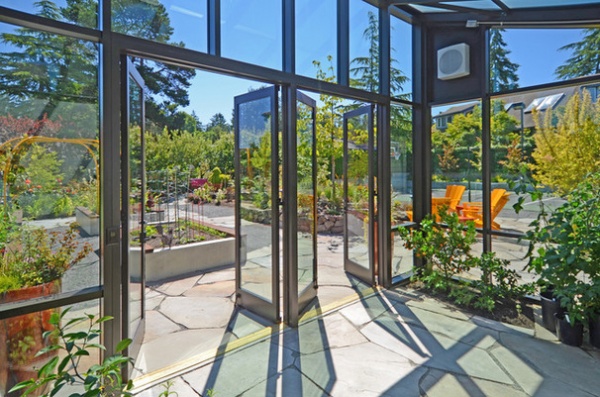
Bluestone: Elegant, upscale and fantastic in a flagstone pattern
Bluestone is a flaky kind of stone that is broken along its fissure lines to create some of the most elegant flagstones. It’s also available as dimensioned rectangular pavers, if you want a regular pattern for your patio.
Guide: Pros and cons of bluestone paving
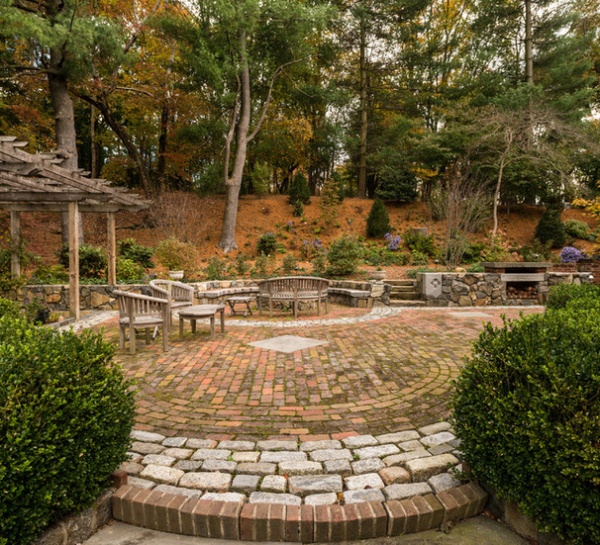
Designer tip: Bricks, precast concrete, stone pavers and all the other modular paver types listed here are available for reuse — you just have to know how to find them. Some municipalities have reuse warehouses where residents can pick up salvaged building materials, and some paving suppliers specialize in historic reclaimed granite pavers and street bricks.
More: See more patio ideas on Houzz
Related Articles Recommended












